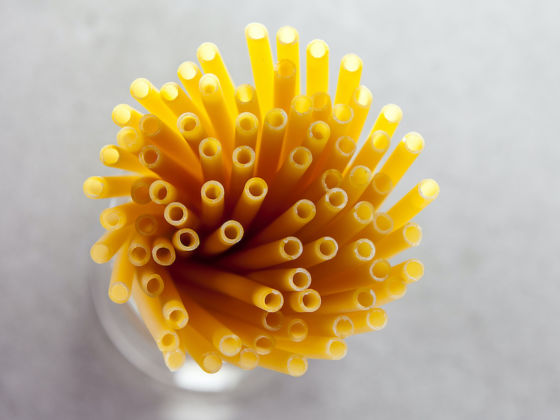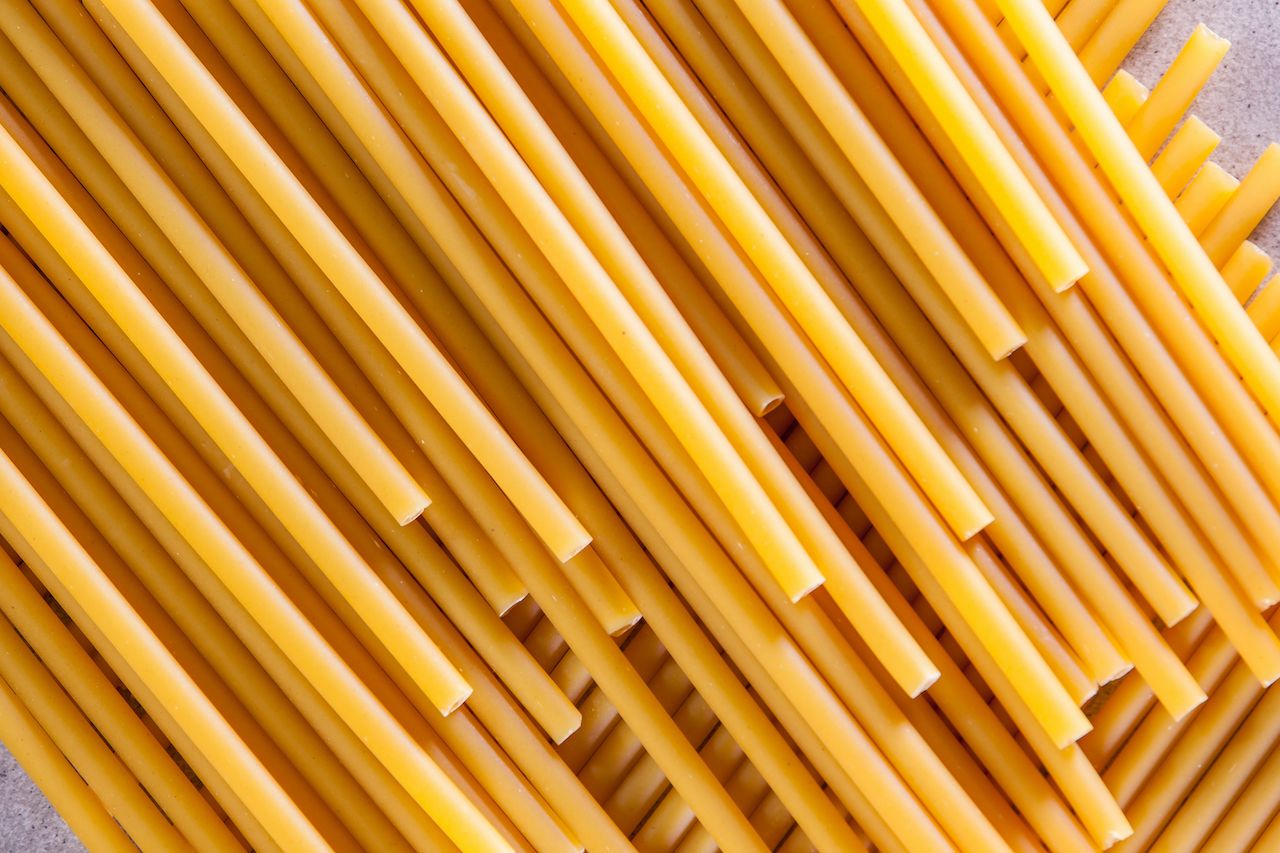In Italy, you expect to see plates piled high with pasta. Go out for an aperitivo in Rome, on the other hand, and you may be surprised to find a tube of bucatini poking out from your glass. Over the past few months, however, travelers have reported exactly that.
A variety of sustainable straw alternatives has hit the shelves since plastic straws became the face of the single-use-plastics problem in 2018. Paper straws are among the most common, though others are crafted out of glass, metal, grass, and hay, to name a few. Following the European Union’s 2019 vote to phase out single-use plastic utensils, straws included, another substitute started popping up in the country that perfected spaghetti: pasta straws.

